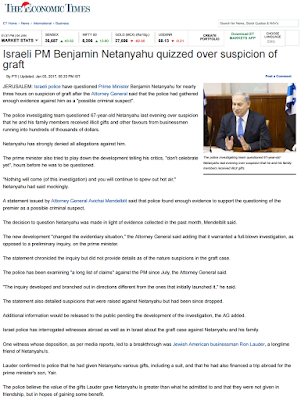The mindless, mandatory biometric linkage of Aadhaar numbers to every aspect of our lives -- from birth to death, telephones and bank accounts -- is causing widespread harassment. The hype that biometric identification was a gift to citizens and a world-beating technological leap is a fallacy. People who are wary about the risks involved in Aadhaar linkages has now risen dramatically, with details of its fallibility being widely reported. But the continued coercive tactics by service providers and regulators indicate that the UIDAI and the government are in no mood to listen.
- (1) There is growing evidence of how inefficient biometric identification in Aadhaar is.
- (2) Aadhaar is not merely about acquiring an identification number; there will be a cost/fee involved in every authentication and updation. The government has maintained a stunning silence on the cost of updation and other mandatory services.
- (3) Most people are realizing that biometrics change over a lifetime. This means that Aadhaar authentication can fail anytime and would need frequent updating especially for senior citizens. If you find it frustrating to update bank KYC information, get prepared for perpetual harassment when ever your biometrics let you down.
- Aadhaar is a nightmare for vulnerable, less-literate people and disempowering for senior citizens who will need to rely on Aadhaar kendras or bank officials for updation.
- UIDAI appoints enrollers and mandates linkages, but provides no recourse to those who are cheated by agents. If you are a victim, you will end up fighting a legal battle or chasing the police for redress.
- The effort involved in the Aadhaar updation exercise will make us even more reluctant to change service-providers and put up with shoddy service. This makes a mockery of competition and choice in a free market.
- IDRBT, a subsidiary of the RBI, has called for caution in use of Aadhaar for government programmes, based on a study of its implementation in AP. It says that it is also unclear if, in the long run, the benefits of Aadhaar will outweigh the negatives.
- On Dec 1,2017, Premani Kunwar, a 64-year old widow died of starvation. Her Aadhaar-linked bank account was manipulated to fraudulently transfer her old-age pension into the account of her husband's first wife. Denied income and rations, she slowly starved. Shockingly, the first wife had a valid bank account with updated KYC (presumably Aadhaar-linked) to which funds were transferred, even 25 years after her death. The case reeks of collusion between bank officials and a stepson, who has been arrested, and exposes the easy manipulation of records and its devastating impact on the very poor.
- Ravindra, a 64-year-old central government officer, who, harried by repeated failure of Aadhaar authentication, wrote, "I am desperate and sometimes start thinking of ending of my life." Writing to the UIDAI was of no use. Instead, he received gratuitous advice to procure a phone in his son's name, thereby defeating the purpose of linkage, disempowering the senior citizen and placing a needless burden on his son.
- Neither the government nor the UIDAI has bothered to respond to thousands of such senior citizens complaints on the National Consumer Complaints Forum.
- What is worse, a government that is in the habit of repeatedly changing its goalposts is not called upon to explain its claim that it will help unearth black money.
- UIDAI's response to criticism has been to browbeat and silence critics. When The Tribune exposed its vulnerability by gaining access to the UIDAI database (not biometrics) by paying just Rs 500 to an intermediary, it reacted by filing a police report. When this led to a media uproar, the government back-pedalled quickly.
- The UIDAI has also announced the introduction of 16-digit virtual ID and facial recognition for better security, and to address the issue of failed authentication for citizens. In case the apex court does not grant relief to the petitioners, we are all in for rough times, while the UIDAI experiments with new technologies whose cost, efficacy and availability across the country are unknown.
The reckless linking of Aadhaar with all services and transactions undermines citizen's privacy rights and is unacceptable in a democracy especially without any robust privacy laws and misuse recourse obligations. This falls short of a 'surveillance state' where all citizens must prove their credentials for each and every transaction they may make just for administrative convenience of irresponsible bureaucracy and for luxurious spending by political classes. This must not be allowed. Aadhaar must be confined to providing unique ID card and for efficient distribution of government subsidies and benefits only. Noting more and nothing less. Biometric verification should always be voluntary and never mandatory for all citizens, except for criminals.









